Matcha Green Tea Has Many Health Benefits
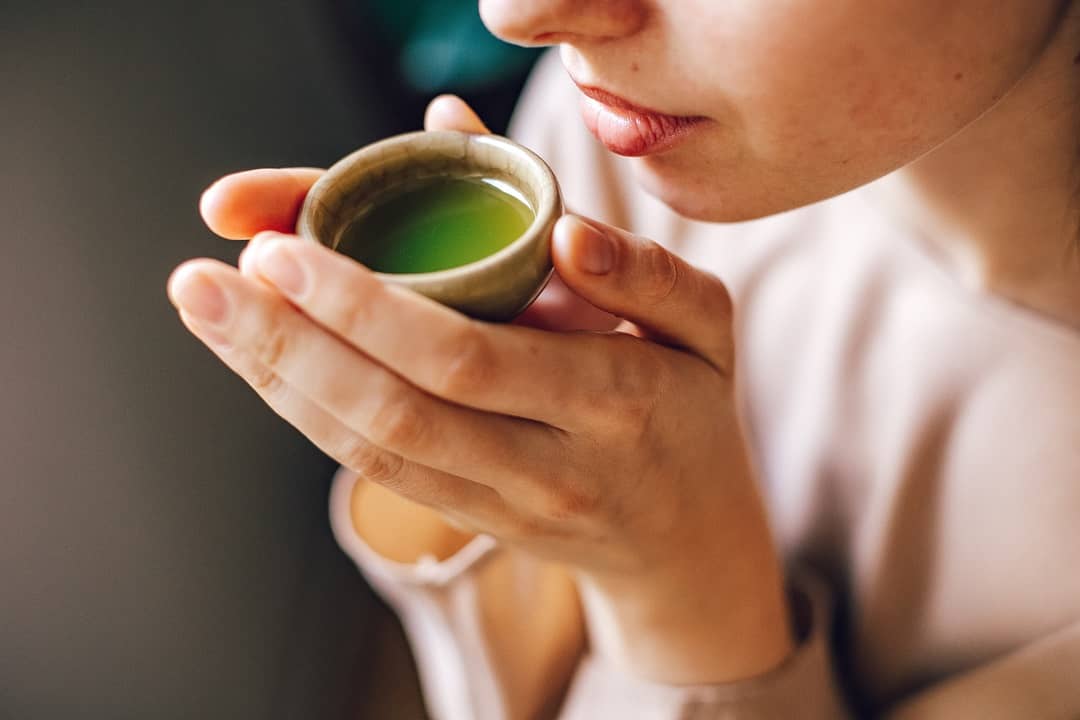
Matcha tea is powdered green tea which has tons of antioxidants. When it comes to regular green tea, leaves get steeped in some hot water, then thrown out. However, matcha tea’s dried leaves get ground up into powder, blended into your drink, then you drink it. Matcha green tea delivers a distinctive, non-sour flavor and is a vivid green hue. It’s said to be the top aromatic kind of green tea.
The following are some of matcha green tea’s possible risks and health benefits, along with ways to use it.
Matcha Green Tea Benefits
Some of the many researches which have been carried out regarding green tea have shown it has several health benefits backed by science. A lot of those studies were done using regular green tea, however, these benefits are also seen in matcha green tea since it is produced using whole tea leaves from green tea.
- 1. Could assist in fighting cancers
Scientists have studied green tea for a long time as a possible way to prevent cancer. One such study showed that females that consumed over 10.4 oz. of it daily got cancer nearly seven and a half years after the women who consumed less than four ounces of it daily.
Another of these researches studied women who had stages one and two breast cancer. It revealed those who consumed around 8 cups of green tea daily had less of a risk of cancer coming back, as well as stayed cancer free longer than in women who only consumed 2 cups a day.
- 2. Could assist in preventing diabetes type 2
Several studies using animals suggested green tea fights diabetes via assisting the body in releasing additional insulin, which is a hormone which assists in transporting blood sugar to your cells where it’s burned to give us energy. Plus, it might assist in improving the way our cells react to insulin, as well as help lower the level of sugar in the blood just as good as some kinds of drugs. But they need more studies on that using people to make sure the results are accurate.
- 3. Could assist in fighting depression
A research where Japanese workers between the ages of 20 and 68 revealed those who consumed under one cup of green tea daily had more of a chance of being depressed in comparison to those drinking more than 4 cups daily. The ones drinking 4 cups were 51 percent less likely to be depressed after the scientists accounted for additional issues.
Another Japanese research came up with nearly the same results with older people. They found that those 70 or more that consumed 4 or more cups daily of green tea additionally were 44 percent less likely to be depressed than the ones consuming 1 cup or less daily.
- 4. Could assist in protecting your brain
An evaluation of 36 studies showed drinking green tea lowers the chances of developing cognitive problems. Brain issues happen more after people turn 65, and usually affect memory, learning, language, movement, ability to solve problems and attention spans. These brain problems are mild all the way up to extreme issues like dementia, Alzheimer’s and Parkinson’s. The info revealed the protection increases dependent on how much green tea someone drinks.
Study using people and animals revealed green tea helps to fight stress and, also lessens the negative impacts on brain health and how it functions. Plus, it assists in suppressing the aging of the brain.
- 5.Could assist in improving male fertility
Study using healthy men in China discovered the ones drinking tea 3 or more times a week had more sperm in their specimens, as well as higher concentration of sperm, which showed good fertility, while the men who didn’t drink had lower amounts.
After a check of studies that were published, the researchers saw green tea has a lot of polyphenol antioxidants. Those antioxidants neutralize compounds which harm healthy cells, to include testicular tissue cells. Plus, green tea additionally raises sperm movements an it’s ability to endure.
- 6. Could assist in lowering bad cholesterol
One study showed those who rank green tea were able to maintain a healthy weight and had lower amounts of LDL as well as total cholesterol. LDL is the “bad” kind of cholesterol as it can cause cholesterol to clog up the arteries, which makes it easier to have heart issues.
- 7. Could lower blood pressure
Drinking green tea is revealed to lower both the upper (systolic) and lower (diastolic) numbers in blood pressure. This was even stronger when the person already had hypertension or additional kinds of heart problem concerns. The result is partially because of the ability of green tea to relax the blood vessels, and this also improves blood circulation as well as lowers inflammation.
- 8. Could help safeguard the bones
Studies with Korean postmenopausal women revealed the ones who didn’t drink green tea or drank lower than 1 cup a day in the last year likely had more problems with lower bone mass in comparison to women who consumed it 3x daily.
Other tests revealed tea drinking is connected to a lower chance of getting osteoporosis. The impact is expected since green tea has antioxidants, which assist in preventing bone loss and enhances formation of bones.
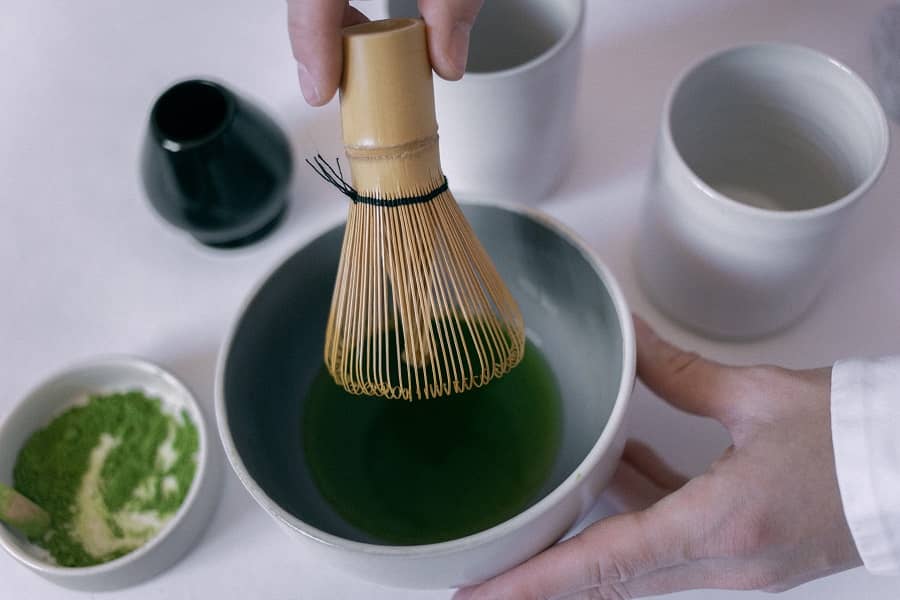
Nutritional Facts
Matcha doesn’t have a lot of calories, and has low amounts of vitamins, minerals, and macronutrients, yet it’s high in antioxidants. A teaspoon of matcha tea powder (what shows up in a lot of recipes for one matcha latte) offers:
- Calories: Seven
- Carbohydrates: None
- Fat: None
- Protein: None
- Calcium: Six milligrams, one percent of the daily value
- Iron: .28 milligrams, one percent of the daily value
Antioxidants in matcha tea are a major part of this tea’s nutritional value—it supports detoxification, reduces inflammation, and protects cells from harm which can cause disease and problems with aging.
Additionally, matcha is higher in caffeine in comparison to seeped green tea. It ranges between nearly 19 to nearly 44 and a half milligrams per gram. A teaspoon of matcha equals 2 grams, therefore the amount of caffeine is between nearly 39 milligrams to nearly 89 milligrams. Green tea that was brewed has nearly 29 and a half milligrams of caffeine.
Dangers
It is thought you can consume as many as 8 cups of green tea daily. However, matcha is a tea that’s stronger than regular green tea. This is due to it being made of whole, powdered leaves.
The government doesn’t actually prescribe precise rules for drinking matcha green tea, however, if you’re healthy, adults should only consume about 400 milligrams a day of caffeine according to the United States Food and Drug Administration.
The National Center for Complementary and Integrative Health says high amounts of green tea could counteract with some kinds of drugs, so you should talk to your doctor prior to drinking it, plus, pregnant or breastfeeding people should not drink matcha prior to speaking with their physicians.
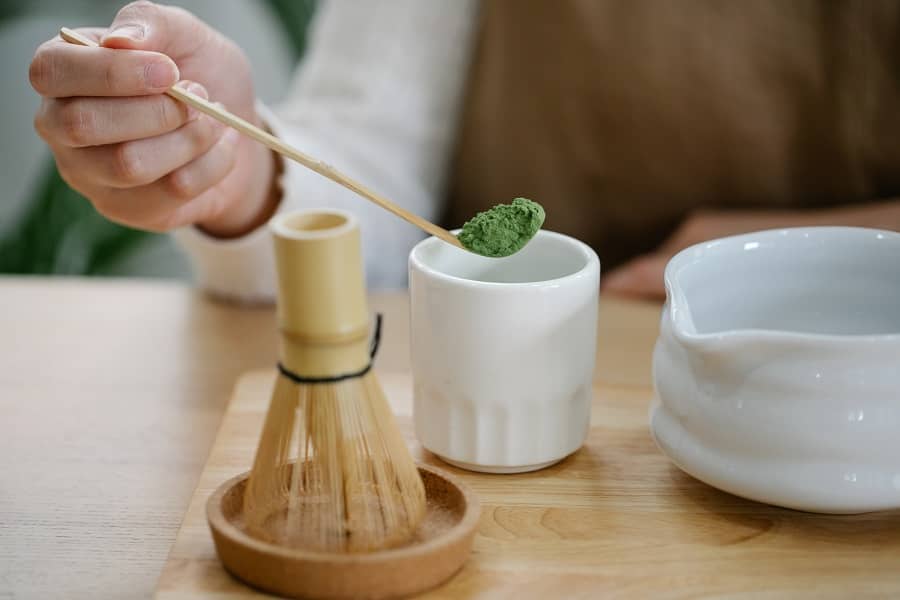
Hints to Drink Matcha Tea
If you want to preserve matcha tea’s antioxidant content, you should keep it stored at around 40 degrees Fahrenheit, which is also the highest you should allow your fridge to get. Research reveled you should brew matcha green tea at 90 degrees Celsius (195 degrees Fahrenheit) for ten minutes if you want to keep the top amounts of polyphenol antioxidants to protect your health.
You can use matcha powder to make lattes or blend it into foods such as baked products, chia pudding, hummus, soups, sauces, oatmeal, energy balls and smoothies. However, because using it like that has had little study, it is not clear if you get the same advantages consuming matcha as you do with regular green tea.
Summary
Matcha has a lot of antioxidants and extends a lot of possible health advantages. Whenever matcha powder gets consumed you could have great benefits for brain function, cholesterol and your blood pressure. Since it has a lot of caffeine, however, it could interact in some ways with drugs, so talk to your doctor to see if you should start drinking it.





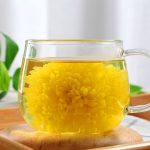





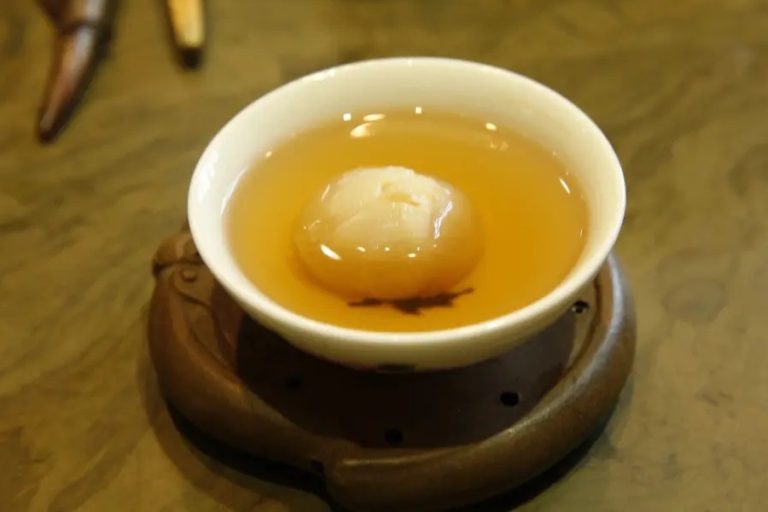



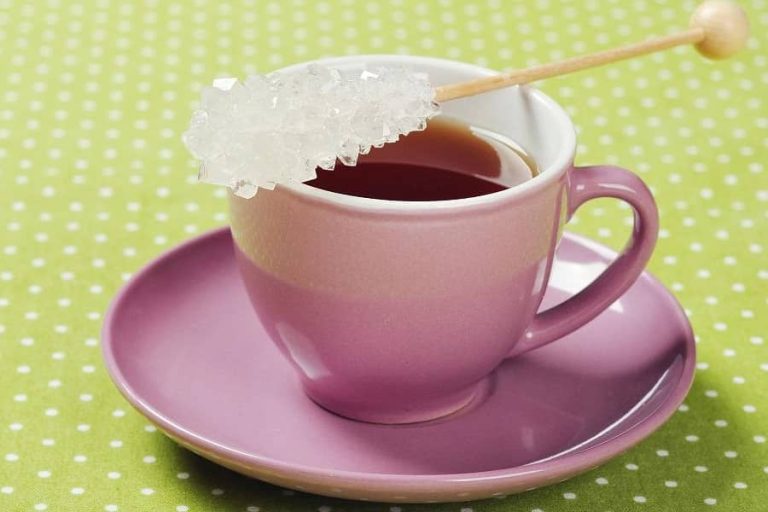

One Comment